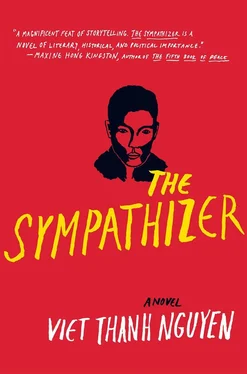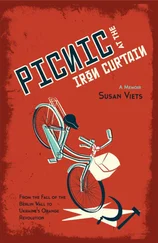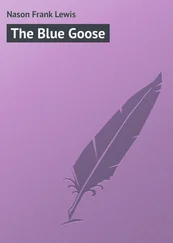In reality, Lan was a tomboy who had to be straitjacketed into her ao dai every morning by Madame or a nanny. Her ultimate form of rebellion was to be a superb student who, like me, earned a scholarship to the States. In her case, the scholarship was from the University of California at Berkeley, which the General and Madame regarded as a communist colony of radical professors and revolutionary students out to beguile and bed innocents. They wanted to send her to a girls’ college where the only danger was lesbian seduction, but Lan had applied to none of them, insisting on Berkeley. When they forbade her from going, Lan threatened suicide. Neither the General nor Madame took her seriously until Lan swallowed a fistful of sleeping pills. Thankfully she had a small fist. After nursing her back to health, the General was willing to concede, but Madame was not. Lan then threw herself into the Saigon River one afternoon, albeit at a time when the quay was well stocked with pedestrians, two of whom jumped in to save her as she floated in her white ao dai. At last Madame, too, conceded, and Lan flew off to Berkeley to study art history in the fall of ’72, a major her parents felt would enhance her feminine sensibilities and keep her suitable for marriage.
During her returns home in the summers of ’73 and ’74, she reappeared as a foreigner in bell-bottomed jeans and feathered hair, blouses stretched tight as a trampoline over the swell of her bosom, clogs adding several inches to her modest height. Madame would sit her down in her salon and, according to the nannies, lecture her on the importance of maintaining her virginity and of cultivating the “Three Submissions and Four Virtues”—a phrase that calls to mind the title of a highbrow erotic novel. The mere mention of her endangered or putatively lost virginity provided ample wood for the cookstove of my imagination, a fire I stoked in the privacy of my room, down the hall from the one she shared with a little sister. Lan had visited the General and Madame a few times since our arrival in California, but I had not been invited to the home on such occasions. Nor had I been invited to go with the General and Madame to her graduation cum laude a few months before. The most I heard of Lan was when the General muttered something about his unfilial daughter, who was now going by the name of Lana and who had not returned home after graduation but instead chosen to live on her own. Although I tried to draw out the General on what Lana was doing postgraduation, he had been uncharacteristically incommunicative.
Now I knew, and now I knew why. This Lana onstage bore no relationship to the Lan that I remembered. In the band’s arrangement, the other female singer was the angel of tradition, clad in a chartreuse ao dai, hair long and straight, makeup tasteful, her songs of choice estrogen-soaked ballads about lovelorn women hailing distant soldier lovers or lost Saigon itself. No such sadness or loss tinted Lana’s songs, no looking backward over the shoulder for this temptress of modernity. Even I was shocked by the black leather miniskirt that threatened to reveal a glimpse of that secret I had so often fantasized about. Above the miniskirt, her gold silk halter top shimmered with every gyration of her torso as she flexed her lungs, her specialty being the rock-’em, sock-’em numbers that the blues and rock bands of our homeland had mastered in order to entertain American troops and Americanized youth. I had heard her sing “Proud Mary” earlier in the evening without realizing it was she, and now I had to remind myself not to stare at her as she let loose a throaty version of “Twist and Shout” that called nearly everyone under the age of forty to the dance floor. Besides the simple yet elegant cha-cha, the twist was the favorite dance of the southern people, requiring as it did no coordination. Even Madame usually did the twist, innocent enough that she allowed her children to flock to the floor and dance, too. But glancing at the General’s table, which occupied a place of honor on the dance floor’s edge, I saw both the General and the Madame remaining seated, looking as if they were sucking on the sour fruit of the tamarind tree that had shaded their lost villa. And no wonder! For no one was twisting more than Lana herself, every rotation of her hips working an invisible ratchet that pulled the heads of the men on the dance floor forward and then pushed back. I might have participated if I was not so aware of Ms. Mori dancing with me, twisting with such childlike glee that I had to smile. She was looking remarkably feminine compared with her usual style. A lily nestled in her marcelled hair, and she wore a chiffon dress that actually exposed her knees. I had flattered her more than once on her appearance, and I took the occasion of seeing her knees during the twist to compliment her on her dancing as well. I haven’t danced like that in a long time, she said when the song was over. Neither have I, Ms. Mori, I said, kissing her on the cheek. Sofia, she said.
Before I could respond, Clark Gable took to the stage and announced a surprise visitor, a congressman who served in our country as a Green Beret from ’62 to ’64 and who was the representative for this district we found ourselves in. The Congressman had achieved a significant degree of renown in Southern California as an up-and-coming young politician, his martial credentials serving him well in Orange County. Here, his nicknames of Napalm Ned or Knock-’em-Dead Ned or Nuke-’em-All Ned, used depending on one’s mood and the geopolitical crisis, were affectionate rather than derogatory. He was so anti-red in his politics he might as well have been green, one reason he was one of the few politicians in Southern California to greet the refugees with open arms. The majority of Americans regarded us with ambivalence if not outright distaste, we being living reminders of their stinging defeat. We threatened the sanctity and symmetry of a white and black America whose yin and yang racial politics left no room for any other color, particularly that of pathetic little yellow-skinned people pickpocketing the American purse. We were strange aliens rumored to have a predilection for Fido Americanus , the domestic canine on whom was lavished more per capita than the annual income of a starving Bangladeshi family. (The true horror of this situation was actually beyond the ken of the average American. While some of us indeed had been known to sup on the brethren of Rin Tin Tin and Lassie, we did not do so in the Neanderthalesque way imagined by the average American, with a club, a roast, and some salt, but with a gourmand’s depth of ingenuity and creativity, our chefs able to cook canids seven different virility-enhancing ways, from extracting the marrow to grilling and boiling, as well as sausage making, stewing, and a few varieties of frying and steaming — yum!) The Congressman, however, had written editorials defending us and welcoming the émigrés to his Orange County district.
Good God, look at you, he said, with microphone in hand, Clark Gable by his side, flanked by angel and temptress. He was in his forties, a crossbreed between lawyer and politician, exhibiting the former’s aggressiveness and the latter’s smoothness, typified by his head. Shiny, polished, and pointed as the tip of a fountain pen, words flowed from it as easily as the finest India ink. This head was the difference in height between him and the shorter Clark Gable, and in every dimension was the Congressman so much more expansive that two Vietnamese men of average height and size could have squeezed themselves into the confines of his body. Look at yourselves, ladies and gentlemen, look at yourselves the way I wish my fellow Americans would look at you, which is as fellow Americans. I am truly thankful for the chance to be here tonight and to share in the joy of this occasion, this marriage of two lovely young Vietnamese people in a Chinese restaurant on California soil under an American moon and in a Christian universe. Let me tell you something, ladies and gentlemen, for two years I lived among your people in the Highlands and fought with your soldiers and shared your fears and faced your enemy, and I thought then and I think now how I could do nothing finer with my life than sacrifice it in the cause of your hopes, dreams, and aspirations for a better life. While I believed as surely as you that those hopes, dreams, and aspirations would be fulfilled in your homeland, we have been dealt another hand by history and the mysterious and unquestionable grace of God. I am here to tell you, ladies and gentlemen, that this is a hand of temporary bad luck, for your soldiers fought well and bravely, and would have prevailed if only Congress had remained as steadfast in their support of you as the president promised. This was a promise shared by many, many Americans. But not all. You know who I mean. The Democrats. The media. The antiwar movement. The hippies. The college students. The radicals. America was weakened by its own internal divisions, by the defeatists and communists and traitors infesting our universities, our newsrooms, and our Congress. You, sad to say, merely remind them of their cowardice and their treachery. I am here to tell you that what you remind me of is America’s great promise! The promise of the immigrant! The promise of the American Dream! The promise that the people of this country used to hold dear and will one day soon hold dear again, that America is a land of freedom and independence, a land of patriots who have always stood up for the little man no matter where he is in the world, a land of heroes who will never relent in the cause of helping our friends and smiting our enemies, a land that welcomes people like you, who have sacrificed so much in our common cause of democracy and liberty! One day, my friends, America will stand tall again, and it will be because of people like you. And one day, my friends, the land you have lost will be yours again! Because nothing can stop the inevitable movement of freedom and the will of the people! Now, affirm with me in your beautiful language what we all believe—
Читать дальше












